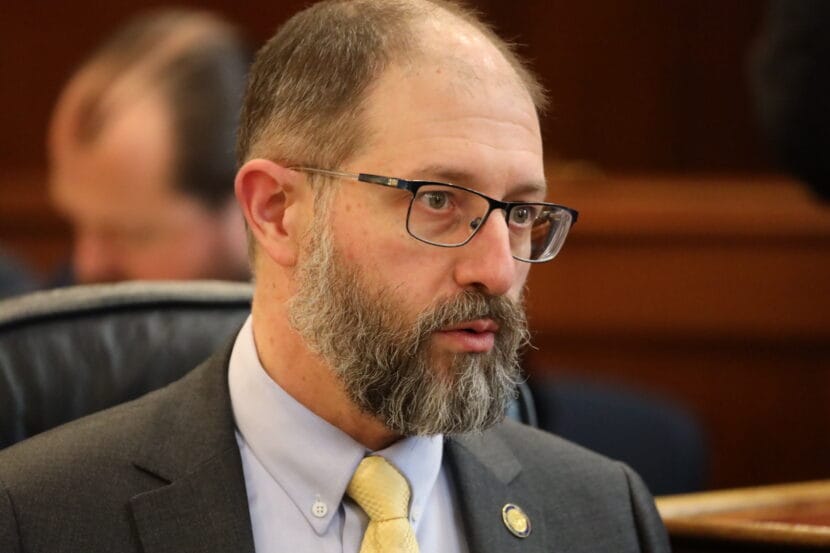
A bill to ban harmful “forever chemicals” in firefighting foams passed the Alaska House and Senate by wide margins Wednesday. Now it’s on the way to Gov. Mike Dunleavy to be signed into law.
The legislation was sponsored by Democratic Senator Jesse Kiehl of Juneau. It prohibits the use of firefighting foams containing a class of man-made chemicals known as per- and polyfluoroalkyl substances or PFAS, which have polluted drinking water across Alaska and the rest of the country.
“I had a good conversation with some of the Governor’s folks and I’m excited to get this to his desk,” Kiehl said following the vote. “I think we can prevent any more poison drinking water from this stuff. And that’s going to benefit everybody.”
Kiehl pushed for similar provisions last year, tucking them into a house bill that made it to the Governor’s desk, but the governor vetoed it.
Exposure to even small doses of PFAS has been linked to health problems like liver damage, high cholesterol and various kinds of cancer. They’re known as “forever chemicals” because they don’t break down in the environment, leading to persistent pollution of water and soil.
“It’s toxic in such tiny concentrations,” Kiehl said. “It’s just a public safety protection we have to make.”
Earlier this year, the U.S. Environmental Protection Agency introduced the first enforceable limits for PFAS in drinking water. Now, public water systems have five years to accomplish the expensive and complicated task of cleaning up their PFAS-contaminated water.
“The cost of dealing with legacy contamination is a national problem and it’s almost nightmarish in scope and price tag,” Kiehl said. “This bill is really focused on making sure that we don’t have any more to deal with here.”
In Alaska, firefighting foams, which are often used to fight fuel fires at airports or military bases, are believed to be the single biggest source of forever chemicals in the environment.
At the federal level, the Federal Aviation Administration and the Department of Defense are also already working to transition away from PFAS fire fighting foams.
Kiehl’s legislation does make an exception for the oil and gas industry. PFAS firefighting foams are still permitted for fires coming from fossil fuel production, transmission, transportation, or refining until the federal government identifies a safe and effective alternative.
The bill also allows the state to reimburse small, rural communities for the cost of PFAS foam disposal.
Correction: A previous version of this story said that the state would buy back PFAS foam to dispose of it. Instead, communities will be responsible for disposal, but the state will reimburse their costs.